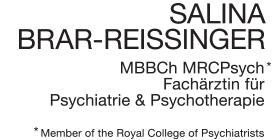Anorexia, Bulimia, Binge Eating disorder and unspecified eating disorders (NB Obesity itself is not an eating disorder but the behaviours that can lead to obesity may be classified as an eating disorder):
Eating disorders are not be underestimated – they are associated with a high level of mortality and morbidity and both men and women across the age, race and social spectrum can be affected. Coinciding with a growing obesity epidemic comes a cultural / societal pressure to be thin. When poor self worth / perfectionism / vulnerability / impulsivity and difficult interpersonal relationships already exist, eating disorders can be a way to gain ‘control’. The control however is short lived and illusionary as there will come a point where the eating disorder is the only focus: with food, weight, and body perception becoming one’s main preoccupation.
The good news is that an eating disorder is treatable and in my many years working with and learning from patients with eating disorders, I am aware of how important the holistic approach to this disorder is. An eating disorder is never ‘just about food.’
General Anxiety disorders, Panic Disorders and Agoraphobia, Social Anxiety Disorder, Obsessive Compulsive Disorder, Specific Phobias
Anxiety itself is an evolutionary developed tool, an early warning system that allows the body and psyche to prepare itself for approaching danger. A disorder arises when the anxiety becomes excessive, persistent, unreasonable and / or when there is no discernible danger approaching. Anxiety disorders can be very debilitating and in addition, the avoidance behaviour that arises in response to the anxiety, can be isolating and results in a limitation in ones personal activities.
From my experience, anxiety disorders are very treatable and show a good response to a combination treatment of medication and psychotherapy.
Acute Stress Reaction, Adjustment Disorders, Post traumatic stress disorder (PTSD)
Sometimes certain life events take us ‚over the edge’ (e.g. death / violence) and we respond with a stress reaction – which can be physical (e.g. increased heart rate, sweaty palms), emotional (feeling overwhelmed,) behavioural (avoidance of situations or people) and cognitive (mental confusion). The reaction itself can be acute or it can persist – and is thus referred to as chronic stress.
The duration of the stress reaction helps to determine treatment. Problem orientated intervention therapy may be sufficient for an acute stress reaction but for Post traumatic stress disorder (PTSD) a more intensive and longer term therapy would be required.
Mania, Depression, Bipolar disorder and Burnout
Mood disorders covers a wide spectrum from an elevated to a depressed mood. Burnout is often used interchangeably with depression, however they constitute separate disorders with the potential for overlap. The common factor with regards to mood disorders is their persistence and impact on functionality and life quality. Whether the mood swings to elevation or depression, the fact remains that our ability to emotionally connect gets lost. Due to the loss of sleep, concentration, appetite, etc., we often feel like a shadow of ourselves. Effective treatment of mood disorder can shorten the span of the illness and improve the quality of life dramatically.
Insomnia, Hypersomnolence, Narcolepsy, Restless Leg Syndrome
Good quality sleep is essential for good mental health. If sleep is disturbed / reduced or even excessive it can be exhausting in every sense of the word. Sleep disorders are often treated by psychiatrists as they form part of the symptoms of many mental health disorders. Good diagnostics is therefore essential to determine the cause and consequently the treatment of sleep disorders.
Treatment here depends on the type of sleeping disorder and it’s cause, but in general a combination of Psychotherapy, Coaching (relaxation techniques) and Medication proves to be helpful.
Somatoform disorder, Hypochondrial disorder, Somatoform Autonomic disorder, Persistent Pain Disorder.
These set of disorders are often referred to as ‘Psychosomatic’ disorders and the clue is in the name: the patient presents with physical symptoms for which an organic cause cannot explain the intensity, extent or impact of the symptoms. Patients may have spent years trying to establish the cause and get the right treatment but what is often forgotten, is that our organs / bodies are not physically separated from our Psyche. Psychiatric/ Psychotherapeutic input is therefore essential to help patients put their symptoms into context and to learn skills to deal with the symptoms in order to lessen its impact. A feeling of being ‘let down’ by the medical profession can often contribute to the suffering and the isolation that patients experience.
My observation is, that a trustworthy therapeutic relationship is essential to the treatment of these disorders.
Personality disorders, Disorders of Impulse Control, ADHD in Adults
The individual disorders that comprise behavioural disorders are varied and complex but what binds them together, is that they arise from rigid / maladaptive and pervasive patterns of behaviour and thought (which deviates from the cultural norm) that have an impact – often negative – on a personal, occupational and social level.
As these behavioural disorders have usually persisted over many years and patients tend to seek professional help in reference to a particular problem. Psychotherapy, including Dialectical behavioural therapy (DBT nach Linehan), is therefore usually the treatment of choice.



